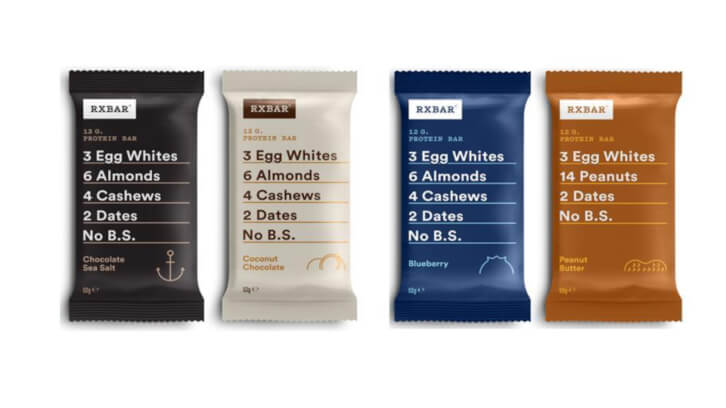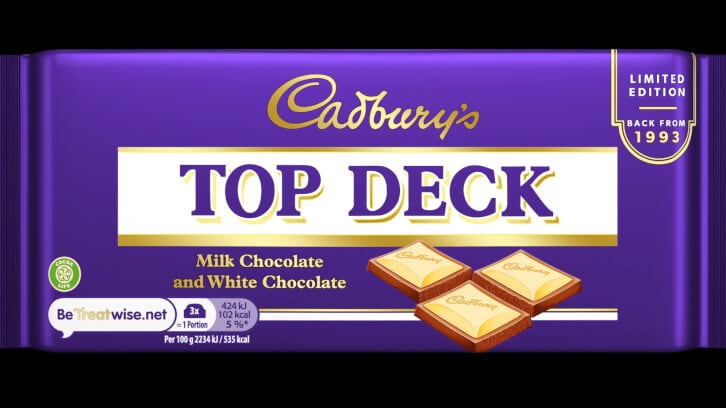Generation alpha otherwise known as the adolescent demographic, is the first generation born entirely in the 21st century. Around 2.5 million gen alphas are born every week. By 2029, the demographic’s economic footprint is anticipated to be $5.46 trillion (€5.1 trillion), nearly as much as millennials and gen zers' spending power combined.
"The needs of gen alpha, born from 2010-2024, are different from those before them thanks to the digital environment and ultimately the way they discover, convert, and consume products," says Kate Williams, founder of KW Marketing.
Now in their teens, the older generation alpha demographic has grown up in a more health-conscious world and are focusing on environmental factors like sustainability. Alongside increasing climate change concerns, “they have also faced challenges like the evolving economy [and] a turbulent political landscape,” says Williams.
This all impacts the way generation alpha behave as consumers, so here’s six priorities confectioners targeting this age group need to consider.
1. Sustainability trumps veganism
Almost a third (31%) of gen alphas eat ingredients such as plant-based foods which they consider trendy, several times a week, a Datassential study finds, but fewer are fully vegan than you might expect. Indeed a 2023 YPulse survey, showed that only 7% of gen alphas described their diet as vegan and plant-based, with 10% describing themselves as vegetarian and 6% as pescatarian. The upshot is that they want choice more than rigidity, and their primary reason for cutting back on animal products is for environmental reasons (see below).
2. Environmental expectations are growing
Generation alpha aren’t waiting to come of age to make a difference to the future of the planet. Indeed according to research conducted on their parents by McCrindle, 80 per cent of those surveyed said their gen alpha children have influenced their actions or consumption decisions, making them more environmentally aware.
By 2030, the oldest of the cohort will be adult consumers with even more power to demand change. This coincides with the deadline of the United Nations (UN) Sustainable Development Goals (SDG) which call on global leaders and companies to prioritise people and the planet's needs through protecting and preserving the environment. Launched in 2012, these goals have impacted the food environment and influenced consumers’ purchases for over a decade now. Generation alpha are entering the consumer landscape as the SDG target nears, so brands will need to pay more attention to this demographic’s clear and loud calls for sustainable action and genuine progress.
3. Integrity is crucial
Researchers call gen alphas ‘upagers’ as they’re considered more socially aware at a young age and become engaged consumers more quickly than other demographics. Almost three-quarters (71%) of gen alpha parents say their children have more mature knowledge and understanding of brands than they did at their age. As champions of inclusivity, compassion, equality, and environmental stewardship they demand the same from the brands they consume. "Gen alphas are looking to engage with brands that use their language and tech to communicate, engage, and care about people and the planet," says Russell. Therefore, authentic and transparent messages, claims and conversations are vital. Confectionery manufacturers and brands will need to demonstrate their integrity, honesty, and consideration of the broader world through transparent storytelling, clear communication, and policies that prioritise people and the plant. "Brands who want to engage with gen alpha need to be true and authentic and put people and the planet first," says Russell.

4. The only way is digital
Generation alpha live in a digital world and brands need to meet them there. "This age group prefer brands to speak to them on platforms like social media with digestible content like TikTok, Snapchat and YouTube Shorts – as that's what they have grown up with," says Williams. Indeed almost half (43%) of gen alphas in the US had tablets before they were six and 58% got their first iPhone by the age of ten. "Gen alpha have been immersed in technology since birth, spending more time online and in front of computer screens, smartphones and tablets than any prior group," says Vhari Russell, Founder of The Food Marketing Experts. Therefore they expect digital-first marketing strategies, immersive engagement and advancing tech from confectioners. This offers a huge opportunity for start-ups using a direct-to-consumer strategy and engaging social media campaigns.
The gamification of marketing is another key way to interact with this demographic. Communities like Minecraft and Roblox in particular offer key opportunities. For example, in June, Roblox announced its collaboration with The Sour Patch Kids to launch its global immersive platform.
5. Sugar-reduction matters
As a demographic, gen alphas have grown up more focused on health and wellbeing. "That's impossible to ignore, especially from a marketing point of view," says Williams. Sugar reduction is one of the key dietary considerations for this group. Data from the A Brand’s Guide to Gen Alpha report shows almost half of parents (46%) restrict their kids’ intake of sugary drinks. Over a third (39%) also said limiting their kids’ sugar consumption was very important to them. Therefore, confectionery brands need to carefully consider this ingredient, while also taking into account gen alpha’s sensitivities to taste and texture and their environmental concerns. “Brands will need to ensure their products deliver on taste and, wherever possible, step as lightly on the planet as possible," says Russell.

6. Clean label is critical
Gen alphas want full and clear information on product ingredients, where they are sourced, and the impact creating these products has on the planet. Ingredient sourcing, formulation and packaging are all important considerations. An example of this is the Kellogg’s-owned RX Bar brand. "Their initial packaging concept didn't deliver on transparency or the full ingredients and didn't perform as well," says Williams. The brand’s packaging refresh prioritised simplicity and transparency. It now highlights the product’s core ingredients and clear nutrition information and sales are soaring as a result. In transitioning to their recognisable packaging today that Williams says "spells out the ingredients with no fluff", they have created a brand worth $600 million (€561.5 million).




